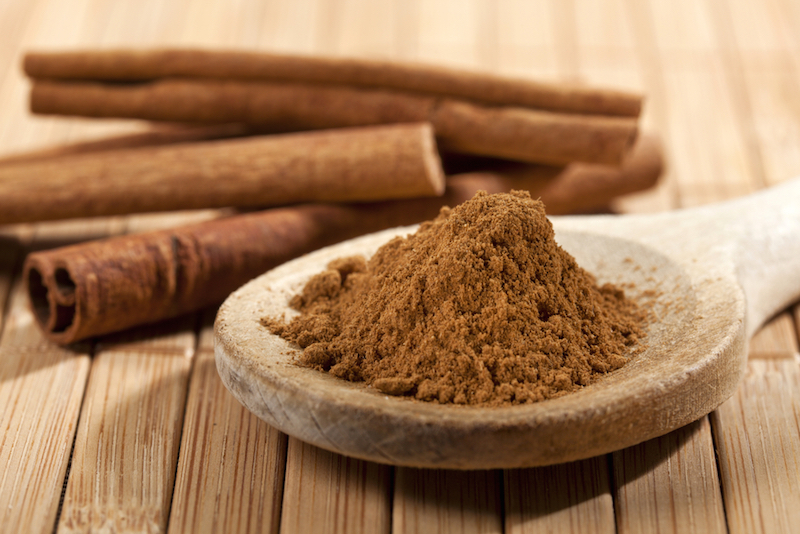Can Eating Cinnamon Cool Off the Stomach?

Get the world’s most fascinating discoveries delivered straight to your inbox.
You are now subscribed
Your newsletter sign-up was successful
Want to add more newsletters?

Delivered Daily
Daily Newsletter
Sign up for the latest discoveries, groundbreaking research and fascinating breakthroughs that impact you and the wider world direct to your inbox.

Once a week
Life's Little Mysteries
Feed your curiosity with an exclusive mystery every week, solved with science and delivered direct to your inbox before it's seen anywhere else.

Once a week
How It Works
Sign up to our free science & technology newsletter for your weekly fix of fascinating articles, quick quizzes, amazing images, and more

Delivered daily
Space.com Newsletter
Breaking space news, the latest updates on rocket launches, skywatching events and more!

Once a month
Watch This Space
Sign up to our monthly entertainment newsletter to keep up with all our coverage of the latest sci-fi and space movies, tv shows, games and books.

Once a week
Night Sky This Week
Discover this week's must-see night sky events, moon phases, and stunning astrophotos. Sign up for our skywatching newsletter and explore the universe with us!
Join the club
Get full access to premium articles, exclusive features and a growing list of member rewards.
Sprinkling some cinnamon on your food might lower the temperature in your stomach, a new study conducted in animals suggests.
The findings showed that pigs that ate cinnamon with their food had stomach temperatures that were up to 3.6 degrees Fahrenheit (2 degrees Celsius) lower than pigs that ate regular food. The researchers have completed a similar study in humans, and found a similar effect, they said.
This stomach-cooling effect appears to be linked with reduced levels of stomach acid and the digestive enzyme pepsin, the researchers said. Together, these effects may help to enhance the blood flow around the stomach walls, which may lead to improved digestion and better gut health, although more research is needed to show whether this is true, the researchers said.
The results of that human trial have not been published in a peer-reviewed journal, but the findings show that cinnamon also reduces the digestion temperature in the stomach in humans, study co-author Kourosh Kalantar-zadeh, a professor of engineering at RMIT University in Melbourne, Australia, told Live Science. [Top 10 Cancer-Fighting Foods]
In the study conducted in pigs, the researchers placed 12 pigs into four groups. One group was fed food supplemented with 5 grams (0.2 ounces) of cinnamon per day, and lived in an environment kept at room temperature, 68 degrees Fahrenheit (20 degrees Celsius). Another group was fed food without the addition of cinnamon, and was also kept at room temperature.
The third group was fed food supplemented with 5 grams of cinnamon per day, but lived in an environment kept at 95 F (35 C) from 9 a.m. to 5 a.m., and then at 82 F (28 C) for the remaining 24-hour period. The fourth group was fed food without cinnamon and housed under the same temperatures as the third group.
During the two-day experiment, all of the pigs were fed twice a day: at 9 a.m. and 3 p.m., according to the study, published Sept. 16 in the journal Scientific Reports.
Get the world’s most fascinating discoveries delivered straight to your inbox.
Previous research suggested that cinnamon may have beneficial effects for gut health, according to the study. The researchers used the higher temperatures for some pigs in the study to raise the temperatures in the animals' guts, and thus mimic the conditions that typically occur in people who have a gut disorder, they said.
The researchers gave the pigs capsules to swallow, which contained sensors that were designed to measure the temperature and the levels of certain gases, such as carbon dioxide, in the pigs' stomachs. The measurements of such gases can be used to assess how healthy the gut is, the researchers said.
The researchers found that in the stomachs of the pigs that lived at room temperature and were given food without cinnamon, carbon dioxide levels in the gut increased by about 21 percent in the 3 to 4 hours after the first feeding, and by 8 percent after the second feeding.
In comparison, in the pigs fed food supplemented with cinnamon, these levels increased by just 13 percent after the first feeding and by 6 percent after the second feeding, the researchers found.
It also turned out that the temperatures in the stomachs of the pigs fed cinnamon were up to 3.6 degrees cooler, on average, than the stomachs of the pigs in the control group. [5 Ways Gut Bacteria Affect Your Health]
The researchers observed similar patterns of differences in the levels of carbon dioxide and temperature among the pigs that were housed under the higher temperatures and fed the two different diets, they said.
Kalantar-zadeh said that, according to his calculations, consuming 1 gram of cinnamon a day should show the same effect on the human stomach. However, he cautioned that, according to the U.S. Department of Health, people can safely eat up to 6 grams of cinnamon daily for 6 weeks or less, but larger doses consumed over longer periods of time may be toxic.
Originally published on Live Science.
 Live Science Plus
Live Science Plus











